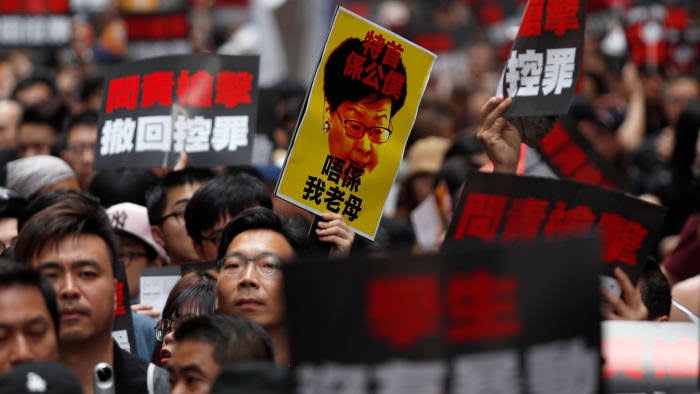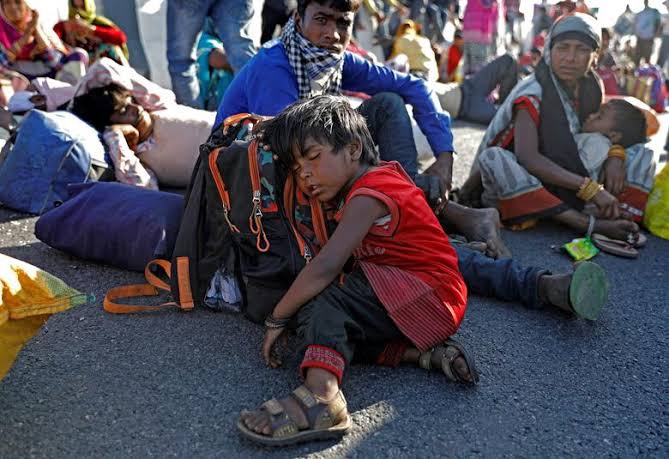Fake news, hypernationalism and Maverick political leaders have institutionalised authoritarianism in the world we live in today.

Kashmir, Xinjiang, Jaffna, São Polo, Minneapolis, Hong Kong, Moscow & Caracas; once exuberant and passionate cities of the world have now dissipated to political revanchism and ignominious abstrusity. A world connected ‘online’ more than ever before has begun to witness populism on its smartphone screens and the cascading impact that it has on Human Rights, Humanitarian Equality and the mere ability of a voter to think. What’s rudimentary to this modern-day farrago is a political will to desecrate institutions, foment fake news on social media and well, nationalist leaders endorsing the same ambiguous information.
The laxity in leadership in some of the most promising nations during the Coronavirus pandemic is appalling. The world has begun to witness the indifference of political leaders towards poor people and immigrants. Migrant labourers in India, favelas in Brazil, Pro-democracy protestors and Human Rights Activists in Hong Kong or black “thugs” in U.S.A., people after people have been subjected to government backed violence, police brutality and fake News. President Donald Trump’s provocateur references for criticising media and science have often been corroborated as fake news. Prime Minister Narendra Modi’s campaigns for disinformation on economics, poverty and his prolonged silence on murkiest undermining of secular ethos of the world’s biggest democracy are unnerving. President Jair Bolsonaro’s consistent abjuring of science has enervated Brazil’s healthcare system and has affected slum dwellers, the lower middle class and small business owners. All of this is easily overlooked by political supporters by either subversion of critical media or a tweet that, “everything is okay, and it’s probably the lame stream media or political opponents.”

Photo: Reuters | Migrant Workers in India have been subjected to police brutality and are forced to walk thousand of miles to reach home amidst the coronavirus pandemic.
This proliferation of Fake News has facilitated hyper-nationalism in unbedevilling ways! Few incendiary Facebook posts and Tweets are just about enough to redux ultranationalists and “inadvertently” begin an episode of oppression, racism and killings without a denouement in sight. Rohingya Muslims in Myanmar, Minority Muslims in New Delhi and African-Americans in Minnesota have witnessed some of the worst riots of the 21st century. The provenance of Fake News is near impossible to articulate, but the impact it has on communities can be. Facebook Inc. and Twitter have to, nevertheless come to the frontline and devise mechanisms to control Fake News, but much more than that, it requires political will and that’s exactly what the world lacks right now. Fake News and Propaganda is the “get-rich-quick” scheme of the conservatives and nationalist leaders. The emasculation of a voter’s ability to make thoughtful political decisions catalyses the Fake yet nationalistic narrative even further and makes it much easier for politicians to “connect” with their support base. This political finesse impacts democracy and constitutional mechanisms everywhere.

Photo: CNN | President Jair Bolsonaro rejects the coronavirus pandemic and holds a public rally in Rio. As of June 2nd, 2020, Brazil is the second worst affected country in the world by the COVID-19 pandemic after U.S.

Photo : NYT | President Donald Trump has often been accused of intolerance in White House news conferences, has rejected the coronavirus pandemic & discouraged wearing of masks. As of June 2nd, 2020, U.S. is the worst affected country by the pandemic. Further, he has endorsed Fake reports on effectiveness of Hydroxychloroquine on his Twitter account and berated The Lancet for rejecting his claims on the drug.Subversion of human rights and arousal of chasms in communities doesn’t always happen by spreading propaganda and Fake News or “using the Internet selectively”, the political class has mastered the art of restricting disagreement and constructive criticism by internet shutdowns all over the world. Media has been subjected to impetuous harassment and even blatant accusations of sedition & perfidy if it disagrees to agree with the point of view in “vogue”. China’s denialism of allowing New York Times reporters in their “mainland”, consistent harassment of “Fake-CNN” by the U.S. and India’s flagrant renouncing of press conferences with media houses on the other side of the ideological spectrum is one of the biggest challenge of our times. Democracy’s foundation lies in the potential to ask questions, and that is exactly what’s threatened today. The dogma of the biggest leaders of the world armed with the capabilities to change the planet’s future and their unadorned denial of responding to criticism is as dangerous as it sounds like.
The 21st century has come with her own complex issues. How are we going to solve them and Can there be catharsis if we do not? In a world where the political leaders try to reflect us in them, are we fit enough to comprehend whether it’s for the better or is it just a glass that reflects back tyranny and fallible socio-economic & geo-political insecurities in the facade of nationalism? The choice is up to us, it always has.


Fascinating article Shivankan + I look forward to following your blog!
Your article hits on many current trends that have been evolving for years + have accelerated with both the arrival + sophistication of the internet. In addition, many other factors – ranging from political populism, to changing media regulations have accelerated the trend. Although populism is a natural + sometimes healthy reaction against elitism, the competition politically between populism + elitism often leads to a lack of transparency on both sides regarding political motives. As a result, there’s a tendency to caricature the positions of each other. As your article articulates, this caricaturing often leads to accusations of “fake news.
Keep up the compelling work Shivankan. We need more civil voices like yours in the political process. With more voices talking in a civil manner, we can hopefully re-set the political dynamic to create a more transparent process that’ll benefit all.
LikeLike
Thank you so much, I’m glad that this piece had an impact on you! I look forward to publishing more blogs and helping people out in their fight against subversion of democracy and media.
Please read my latest blog here : https://techxfaith.wordpress.com/2020/06/05/well-this-partys-on-democracy-and-populists-arent-invited/
Thank you, Perry!
LikeLike
A very fine article that provides a thoughtful counter narrative to totalitarianism. The suppression of the minorities and it’s legitimization is happening around the world and opinion like yours throw light upon the issues that need global attention.
LikeLike
Thank you so much, fellow writer.
LikeLike
It’s great to hear from you once again. Hope you continue to write more often
LikeLiked by 1 person
Thank you so much, Sonali!
LikeLike